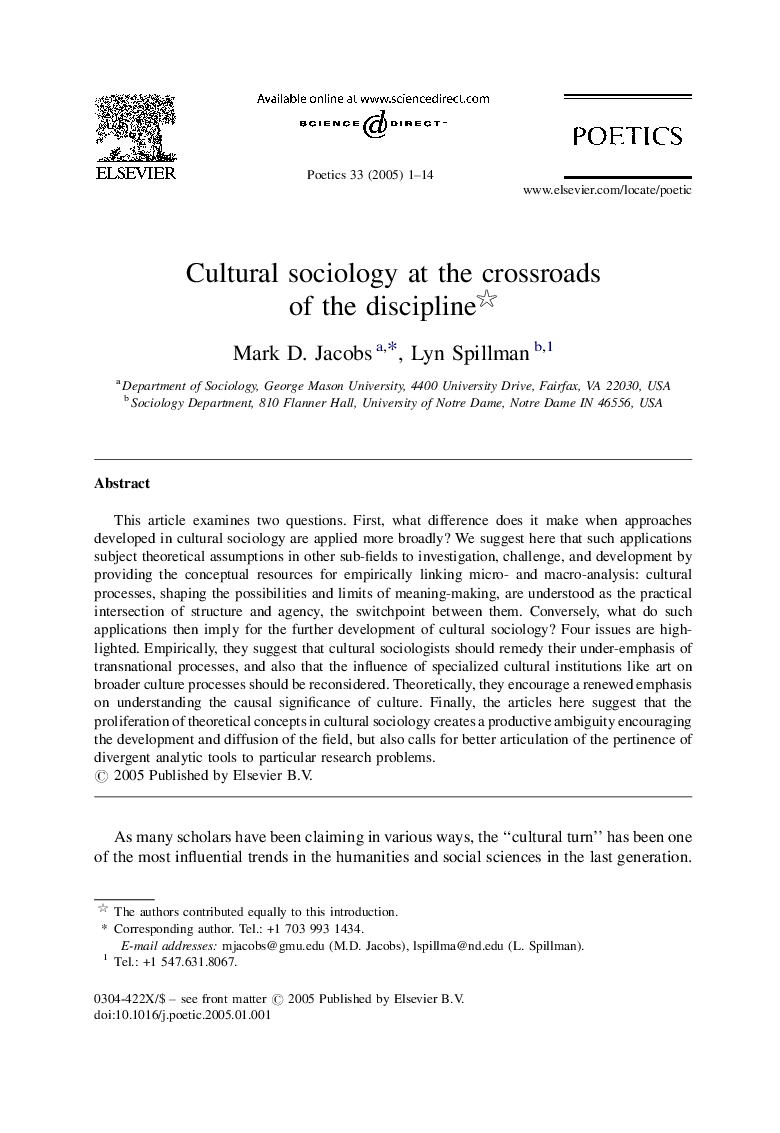| Article ID | Journal | Published Year | Pages | File Type |
|---|---|---|---|---|
| 10521425 | Poetics | 2005 | 14 Pages |
Abstract
This article examines two questions. First, what difference does it make when approaches developed in cultural sociology are applied more broadly? We suggest here that such applications subject theoretical assumptions in other sub-fields to investigation, challenge, and development by providing the conceptual resources for empirically linking micro- and macro-analysis: cultural processes, shaping the possibilities and limits of meaning-making, are understood as the practical intersection of structure and agency, the switchpoint between them. Conversely, what do such applications then imply for the further development of cultural sociology? Four issues are highlighted. Empirically, they suggest that cultural sociologists should remedy their under-emphasis of transnational processes, and also that the influence of specialized cultural institutions like art on broader culture processes should be reconsidered. Theoretically, they encourage a renewed emphasis on understanding the causal significance of culture. Finally, the articles here suggest that the proliferation of theoretical concepts in cultural sociology creates a productive ambiguity encouraging the development and diffusion of the field, but also calls for better articulation of the pertinence of divergent analytic tools to particular research problems.
Related Topics
Social Sciences and Humanities
Arts and Humanities
Arts and Humanities (General)
Authors
Mark D. Jacobs, Lyn Spillman,
